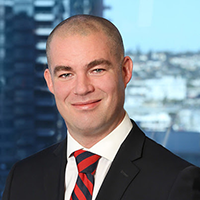
By Andrew A. Servais
Wingert, Grebing, Brubaker & Juskie, LLP

It is not uncommon for attorneys to change law firms or depart to start a solo practice or a practice with a fellow attorney from a former firm.
Law firm partners are bound by their fiduciary duty to the partnership and the other partners “[t]o refrain from competing with the partnership in the conduct of the partnership business before the dissolution of the partnership.” (Corp. Code, § 16404 (b)(3); Heller Ehrman LLP v. Davis Wright Tremaine LLP (2018) 4 Cal.5th 467, 480 [“partners cannot compete with their firm during the partnership, even for ‘the most remunerative cases.’”].)
While California Business & Professions Code Section 16600 invalidates “any employment agreement that unreasonably interferes with an employee’s ability to compete with an employer after his or her employment ends” and precludes employers from preventing employees from competing with a former firm after they depart, the statute has never been “held to invalidate an agreement not to compete with one’s current employer while employed by that employer” or “immunize employees who undermine their employer by competing with it while still employed.” (Techno Lite, Inc. v. Emcod, LLC (2020) 44 Cal.App.5th 462, 472–474.)
Associates and others at law firms who are classified as employees have similar duties of loyalty. (Huong Que, Inc. v. Luu (2007) 150 Cal.App.4th 400, 414 [“an employee, while employed, owes undivided loyalty to his employer”] citing Fowler v. Varian Associates, Inc. (1987) 196 Cal.App.3d 34, 41.) By statute, “[a]n employee who has any business to transact on his own account, similar to that intrusted to him by his employer, shall always give the preference to the business of the employer.” (Lab.Code, § 2863.)
These duties continue to be tested in the legal field. In Governo v. Bergeron, the Massachusetts Supreme Judicial Court held that departing lawyers who competed unfairly with their former firm could be held liable to the firm under the Massachusetts consumer protection statute. Specifically, Chapter 93A of the General Laws, Section 11, prohibits anyone engaged “in any trade or commerce” from causing losses by means of an “unfair method of competition or an unfair or deceptive act or practice” to another person engaged in the “conduct of any trade or commerce.” Governo L. Firm LLC v. Bergeron, 487 Mass. 188, 196, 166 N.E.3d 416, 425 (2021). The statute found dispositive in Governo includes several similarities to California Business and Professions Code section 17200, as well as other laws.
In Governo, a group of nonequity partners in the Governo Law Firm, or GLF, formed a competing firm. While preparing for their departure, the attorneys downloaded various proprietary materials developed by GLF at significant cost over 20 years.
The attorneys concealed both their planned departure and their document downloading activities from GLF’s sole owner, David Governo. The departing attorneys then made an offer to Governo to buy GLF, stating they would resign if the offer was not accepted that day. After Governo rejected the buy-out offer, the attorneys began operating their new venture using GLF’s materials to represent clients and grow their competing firm.
Governo filed suit against the departing attorneys and their new firm, asserting claims for conversion, breach of fiduciary duty, conspiracy and violations of Chapter 93A. When the case went to trial, the jury found in Governo’s favor on the claims he asserted for conversion, breach of the duty of loyalty, and conspiracy, and awarded him $900,000 in damages.
The trial “judge instructed the jury that G. L. c. 93A did not apply to ‘anything’ the defendants did ‘while they were still employed’ by GLF, and that the copying of GLF’s materials, because it occurred prior to the attorney defendants’ last day as GLF’s employees, was ‘irrelevant’ to the jury’s determination of G. L. c. 93A liability. In effect, the jury were instructed to ignore how the attorney defendants obtained GLF’s materials in determining whether the subsequent use of those materials was unfair or deceptive.” (Id. at p. 196.) The Supreme Judicial Court concluded this jury instruction was erroneous because Chapter 93A “required the jury to consider that the attorney defendants stole GLF’s materials in order to determine whether the subsequent use of these materials was unfair or deceptive” and where “an employee misappropriates his or her employer’s proprietary materials during the course of employment and then uses the purloined materials in the marketplace, that conduct is not purely an internal matter; rather, it comprises a marketplace transaction that may give rise to a claim under G. L. c. 93A, § 11.” (Id. at pp. 195-196.)
Attorneys who flout their duties to their current employer or partnership may face consequences for proven violations of those obligations. Case law interpreting these duties continues to develop and evolve across the country. While the above illustrates what many would label an extreme set of facts, the fact these issues continue to be litigated shows every attorney must keep these duties in mind whenever departing a law firm.